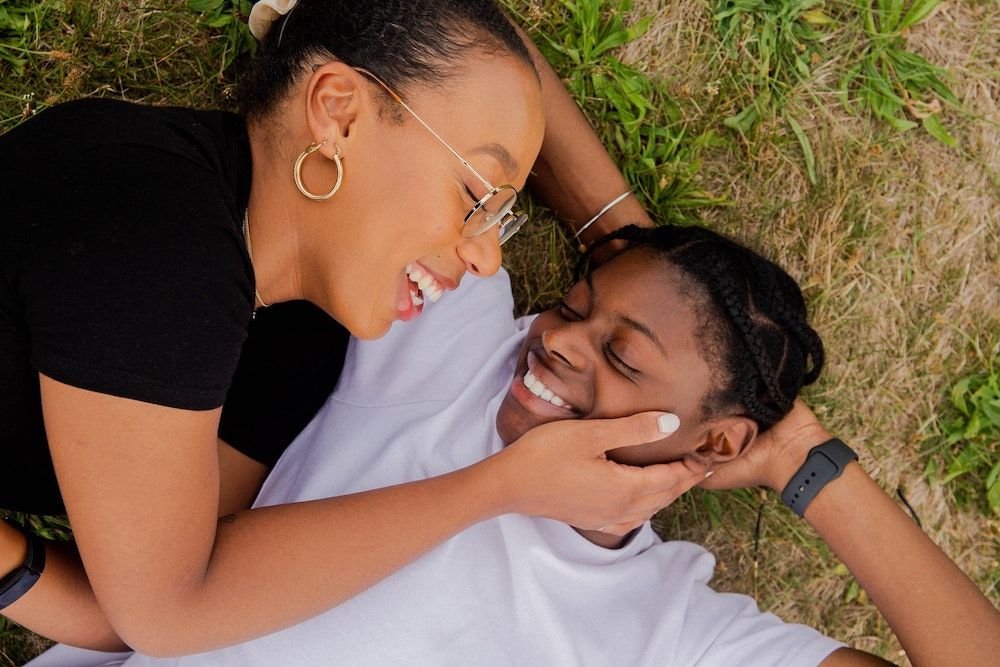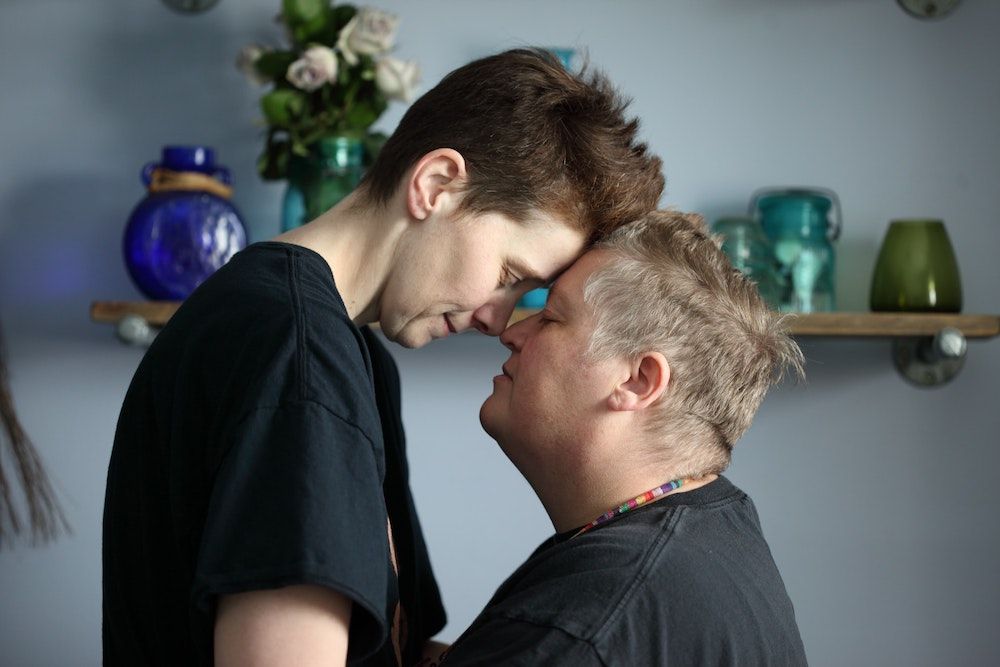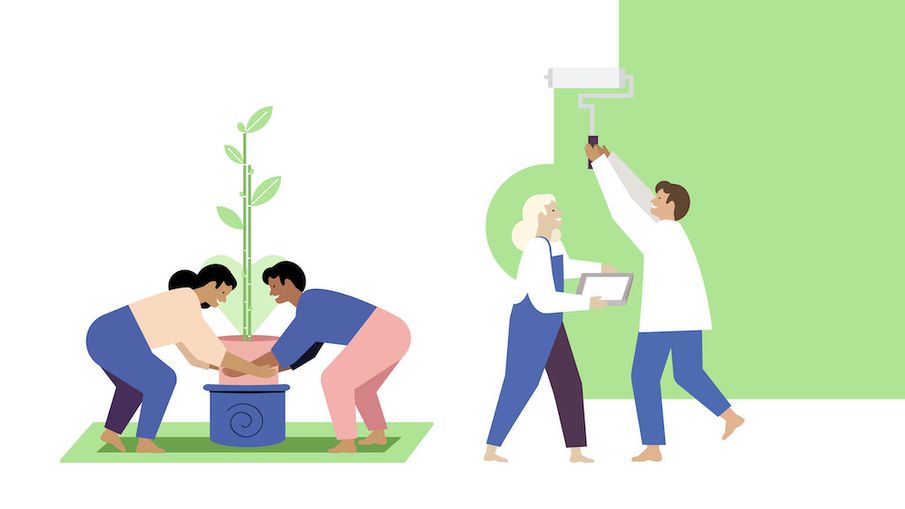You may be aware of relationship red flags – warning signs to avoid – but what about the things that give you the signal that you’ve got a good thing going on?
Controlling behaviour, breaking boundaries, and not respecting your needs – we’re all familiar with some of the major red flags to watch out for in relationships. But what about the things that can indicate your relationship is healthy, productive, and secure?
Here, with help from relationship counsellor Bibi Jamieson, we explore the green flags that are letting you know that you’re on to something good.
1. You feel safe
“Being accepted, just the way you are, means you feel safe to be physically and emotionally intimate,” says Bibi. “You can be authentic, revealing all parts of your body and personality, without feeling judged.”
Feeling physically safe might be about both respecting boundaries and controlling body language, and this should be something you can pick up on quite quickly. Feeling emotionally safe may take a little longer – particularly if you have been hurt in the past – but as you develop as a couple, you should begin to create a space where you can be truly vulnerable with each other.

2. Conflict strengthens your relationship
“Conflict doesn’t scare you, because you are secure in your relationship,” Bibi explains. “When you do have an argument, there is no intent to hurt one another, you repair quickly, and feel closer afterwards.”
Being able to express your feelings and work through everyday conflict, without fear of being abandoned – or of that conflict escalating to an unmanageable level – means that you are able to consciously create a safe place to explore your fears, frustrations, and desires, all the while learning lessons about each other that you can take forward.
3. Your success makes them happy
There’s a difference between growing together, and being in competition with each other – and that differentiation is key to a lasting, productive relationship. Does your partner bring out the best in you, and vice versa? Do you share in each other’s achievements, and celebrate each success equally?
“You root for each other and support each other’s growth and happiness,” says Bibi. “There is no competition or resentment, and although you have influence over each other’s decisions, you don’t hinder each other’s growth – when they win, you win.”
4. You are attuned to each other’s needs
“You can express what you need, and they will meet those needs as best they can – or, even better, they respond to your unvoiced needs before you ask,” Bibi says. “When there is attunement, you feel each other’s needs deeply.”
This is another green flag that may come with time but, even in the early stages of a relationship, you should be able to notice whether your partner is taking the time to listen to and understand your needs.

5. You’re genuinely happy in each other’s company
“You enjoy each other’s presence, and have a sense of humour about both of your quirks,” says Bibi.
Ease, happiness, and joy are all things that you will be able to pick up on yourself, simply by reflecting on your mood and desires when you’re with your partner – but Bibi adds that this is also something that others will be able to notice about you. Do your loved ones, the people who care for and know you the best, pick up on the effect that you have on one another?
6. You feel free
“There is freedom in love,” says Bibi. “You give freely of yourself, you don’t feel restrained or trapped, you do things for each other because you want to – not because you have to.”
Nothing about the relationship feels forced, everything comes naturally, and you’re moving at a pace that feels good to both of you. You don’t feel a pressure to be anything but yourself, and you are free to continue the rest of your life as you did before the relationship, only your partner is now by your side, supporting you as you go.
Bibi Jamieson is an integrative psychotherapeutic counsellor and couples therapist. She also volunteers at mental health charity Headstrong, and as a couples pre-marital guide at HTB church.
Find out more by visiting counselling-directory.org.uk



Comments